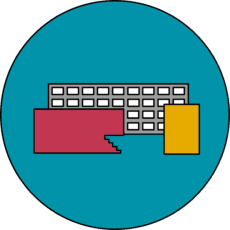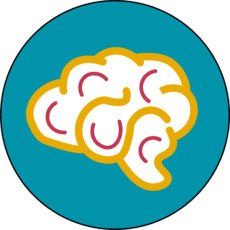Published on: 14/07/2023 · Last updated on: 06/06/2025
Our approach
The Decolonising Curriculum movement has gained increasing attention in the Higher Education sector. Whilst many staff are committed to developing teaching and learning which supports this, translating policy into classroom practice can frequently present a challenge. This page outlines our approach to supporting staff in relevant decolonising activity, which is part of the University’s wider commitment to supporting the needs of all learners through the design and development of its curricula. We also work closely with others across the institution who are working towards similar ends, including Bath’s own Centre for Decolonising Knowledge in Teaching, Research and Practice (DECkNO) and the Race Equality Charter team.
Join the Community of Practice
Connect with others across the institution engaged in this area by joining the Decolonising Learning and Teaching Community of Practice Teams site. Open to all staff who are interested in sharing practice and learning from each other. The CoP is a self-organising space and advertises various opportunities for staff to meet in-person or online.
Physical, cultural and cognitive approaches



Our Patterns Beyond Labels framework supports staff to implement practical and sustainable approaches to decolonising the curriculum using physical, cultural and cognitive lenses to frame their practice. The lenses are intended to provide clarity and guidance, whilst also enabling staff to tailor their approach depending on the context of their subject discipline and needs of their student cohort. As with other forms of inclusive practice, decolonising represents a process and can be developed over a period of time.
Physical
The physical lens focuses on the spaces ‘where’ learning takes place. This includes promoting access to the institution in terms of both the physical campus and the online environment (e.g. time zones; access to technology) for underrepresented groups. This could include:
- Managing the classroom in order to generate participation and confidence amongst all students.
- Providing students with a wider circle of contacts or experience within the course design through visits, engagement with people outside university or new kinds of material.
Cultural
The cultural lens refers to the ‘what’ of learning and supports staff to consider the examples we use and resources we select (e.g. reading lists), to ensure that our subject content reflects the life experiences of the cohort in its broadest sense. The cultural lens also includes ensuring transparency and clarity regarding expectations. This could include:
- Drawing on a wider range of journals and textbooks, including those located in the global South which may help capture different debates or perspectives.
- Ensuring transparency and clarity around all aspects of teaching, learning and assessment in terms of expectations, outcomes, opportunities.
- Talking to students about what kinds of content they would like to see addressed and keeping some free space in the course to teach around topics identified by students in that year.
Cognitive
The cognitive lens refers to ‘how’ we teach and learn and has two key areas of focus. The first is knowledge reproduction and includes the decisions we make regarding the content we include and how we organise and build our narrative, based on the content we select. The second key area of focus is on ‘unlearning’ and refers to how we enable or support our students to interpret and make sense of the narrative we build. Criticality and the ability to synthesise new ways of thinking are central to this. In this sense Higher Education represents a powerful opportunity for unlearning and synthesising new types of knowledge production. This could include:
- Contextualising (rather than removing) the subject in its historical moment, making explicit the kinds of research programmes, assumptions and aspirations that generated it.
- Considering how the content you teach is organised and sequenced as this will directly shape the narrative you provide for students. E.g. Teaching through the juxtaposition of material from different areas.
- Re-organising material in the syllabus to bring different issues to prominence; such as introducing various kinds of critical perspectives to the earlier sessions.
- Effectively scaffolding the students’ development of critical thinking linked to Decolonising.
Recent resources
Decolonising the university: academic and student voices in a South-North dialogue
In March 2021 the CLT and Race Equality Taskforce co-hosted an online seminar featuring presentations from Prof Andre Keet (Nelson Mandela University, SA), Decolonise Architecture, and the Students’ Union. You can view the recording of this event via Panopto or read an overview on the CLT blog page.
Creating an anti-racist classroom: how can we put principles into practice?
In October 2020, as part of the CLT’s Talk Teaching series, we hosted a panel discussion on creating an anti-racist classroom with internal and external speakers. You can view the recording of this event on Panopto.
Examples from Bath
In our current core first year unit in the Politics degrees, I give a lecture in the first semester focusing in part on privilege, what it means to those who have it and those who don’t and what it means in HE. PL30880: The rise of the far right and PL30873: Liberté, Egalité, Fraternité: perceptions and reality in French society are two large final year optional units (between 60 and 90 students take them every year). These units are both based largely on my research and centred around a conceptual understanding of where reactionary ideas come from and what gives them strength at particular times. In these units, I encourage students to develop a critical outlook about their own positionality through the use of critical sources and work on challenging invisible norms such as whiteness.
Dr Aurelien Mondon, Department of Politics, Languages & International Studies
Two examples from my teaching practice: I teach Political Sociology (SP20244, year 2 and 3 Sociology students and students from other Departments in the Faculty). This year we will explore the question: Is Political Sociology Eurocentric? Why? In what Ways? What can be done about it?; (ii) I teach Sociological Theory (SP10044, SM 1), a Year 1 core unit. When I introduce the unit and the three Classical Sociologists Karl Marx, Max Weber and Emile Durkheim, we explore and discuss in class why these three classical sociologists are white and male. We talk about Eurocentrism and gender oppression.
Dr Ana Cecilia Dinerstein, Department of Social & Policy Sciences
Further resources
- The prompts on the Decolonising SOAS toolkit are helpful as a practical way of working through your teaching material and in your design: see pp.9-10 and pp. 15-17. Both sections include practical suggested adaptations.
- Building the Anti-Racist Classroom Collective have some excellent suggested readings and a ‘student journey game’ resource to scaffold discussions with staff. The game provides staff with an interactive format to engage with the issues, centering the voices and knowledge of students of colour.
Recommended reading on decolonising the curriculum in HE
Our thanks to Ana Dinerstein for her help in compiling this list. You can use this Library reading list to access all the resources listed below:
- Why is My Curriculum White? Peters, M (2015) Educational Philosophy and Theory, 47:7, 641-646, D
- Arday, J and Mirza, H.S. (Eds.) (2018). Dismantling race in higher education: Racism, whiteness and decolonising the academy. London: Palgrave Macmillan.
- Bhambra, G. K., Gebrial, D. and Nişancıoğlu, K. (2018) Decolonising the University. London: Pluto Press (see especially p.119 on positionality, relationality, and transition).
- Rhodes Must Fall. The Struggle to Decolonise the Racist Heart of Empire.
- Freire, P. (2000). Pedagogy of the oppressed. London: Bloomsbury Publishing.
- The End of the Cognitive Empire. The Coming of Age of Epistemologies of the South, Boaventura de Sousa Santos.
- Santos, B. D. S. (ed) (2008) Another Knowledge is possible. Beyond Northern Epistemologies. London: Verso.
- Santos, B. D. S. (2014). Epistemologies of the South: Justice against Epistemicide, London: Routledge.